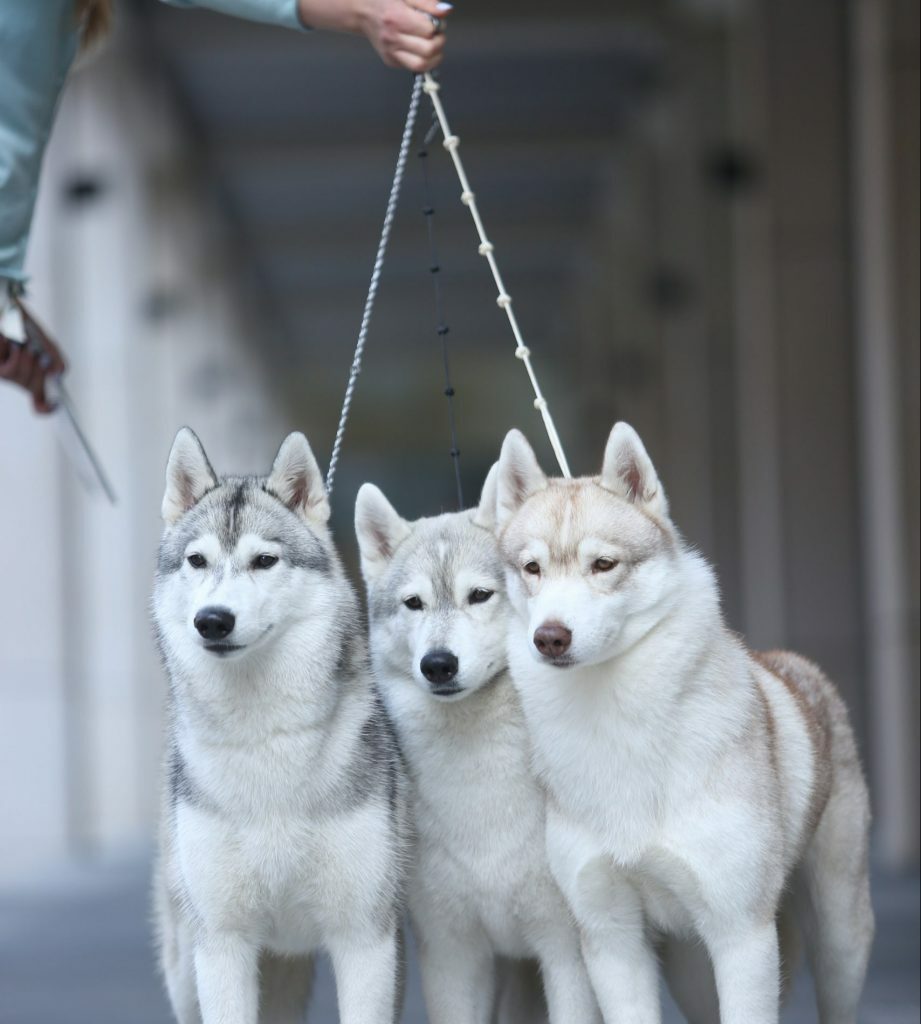Why is it so important to decide on a reputable Siberian husky kennel and breeder before purchasing a puppy?
The breeder's vision of life with Siberian Husky and his views on dogs should resonate with you and leave a positive impression.
Those views that will matter to you and align with your values. It's the Husky lifestyle they convey that should match yours.
A GOOD and RESPONSIBLE BREEDER is also a person, a family, in which their kennel is a significant part of their life. They live and breathe it.
They have a specific lifestyle in which dogs are actively involved. In some cases, the dogs even shape that lifestyle.
They have a specific lifestyle in which dogs are actively involved. In some cases, the dogs even shape that lifestyle.
You see, Huskies do PLAY a role in their life, rather than simply existing next to humans as livestock. When interacting with a good Husky breeder, you can glean a wealth of interesting and useful facts about:
• the breed itself
• caring for Siberian huskies
• what life with Siberians is like and what activities to engage in with them
• nutrition and grooming for Siberian huskies
• the breeder's principles in raising puppies, breeding in general, and the breeder's values in the breed itself
• caring for Siberian huskies
• what life with Siberians is like and what activities to engage in with them
• nutrition and grooming for Siberian huskies
• the breeder's principles in raising puppies, breeding in general, and the breeder's values in the breed itself
You should get the impression that you are having a dialogue about his Siberian Huskies, not just a conversation about the price of a puppy. By the way, he won't hesitate to tell you about himself, his dogs, and his activities, and guide your thoughts about life with a dog in the right direction.
A good Siberian Husky breeder will constantly emphasize the importance of proper SOCIALIZATION, a strong nervous system, and a STABLE PSYCHE for the puppy. They might even conduct some tests in front of you, explain what just happened, and outline the puppy's reactions.
Moreover, good breeders will talk about ANATOMY. Yes, dogs have it too, and it plays a crucial role in breeding activities. For Siberian Huskies, being a working breed, it's essential. The breeder will be able to explain in detail which body parts are involved in specific activities and how it affects their working abilities. They can provide well-founded arguments about the significance of anatomy for their performance.
What you should also appreciate about this kennel is their ADULT Siberian Huskies.
You should appreciate their adult Huskies for their appearance, behavior, temperament, coat, physical and psychological condition. The breeder will tell you about their grandparents, show you photographs, and discuss their strengths and weaknesses. They will proudly mention long names with a genuine expression on their face.
Knowing the history of their dogs' origins is a significant value for the breeder.
For a responsible husky breeder, his dogs are more than just beautiful appearances, the breed name, or puppies.
He genuinely cares about the health of his Siberian husky pack. That's why he always conducts the necessary set of genetic tests and various recommended health examinations for Siberian Huskies. So, feel free to request health tests for his adult dogs.
You should like his puppies based on their condition and behavior.
This is one more aspect to consider when choosing a good breeder, especially if you were invited to the kennel and given a chance to see the puppies or if you were reviewing photos of puppies from their previous litters.
If you were fortunate enough to see the puppies in person, take note of whether they were not frightened and did not hide from you when you approached them. Such behavior is neither good nor bad, it's just information for you to consider.
Btw, it's perfectly normal if the breeder chooses a puppy for you based on their expertise. Because if they understand, they will listen to you, understand what kind of person you are and what your needs are, recall which puppy would be the best fit for you, and suggest it.
In addition
Breeding is not about making money. It's a story of investments, genetics, biology, anatomy, the breed, and preserving its purpose and characteristics. A breeder spends much more money on their dogs and raising puppies than what they ask for the price of their puppies.
Breeding is a costly endeavor. Historically, it has been pursued by people with financial means, and for most, it becomes a lifelong passion and dedication. To sustain this, a person may have an unrelated business or work for another company.
